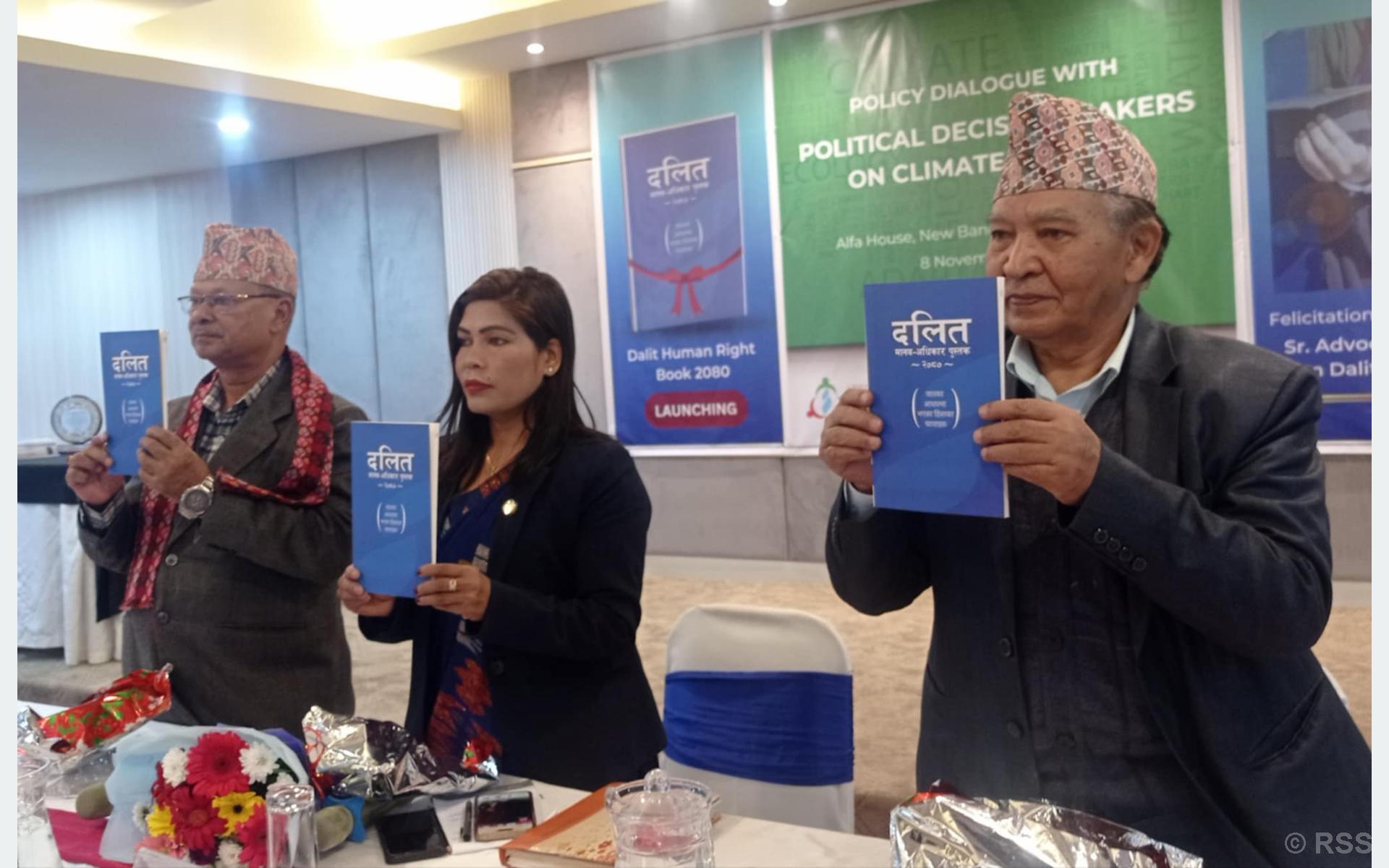

KATHMANDU: The Dalit Human Rights Book-2080, published by the Samata Foundation, has been released on Friday.
Minister of State for Forest and Environment Rupa BK, Foundation’s President Dr Madan Prasad Pariyar and Foundation’s Board Member and former ambassador Padam Sundas jointly made public the book.
The book is an account of human rights violations among the Dalit community in Nepal throughout a year, 2080 BS.
According to the statistics recorded in the book, 12 cases of caste-based discriminations were reported at public and private places in the year while seven such cases were registered. One case was resolved through mediation.
Similarly, 5 cases of discrimination based on profession and labour occurred in the same year including one among Nepali diaspora in Japan. Legal recourse was sought in three such cases.
The book shows that there were 10 cases of discrimination due to inter-caste marriage. Legal action was taken forward in six such cases while two cases were proven false allegation later.
Likewise, 29 cases of subjugation, intimidation, beating and threatening due to caste were reported in the year, 2080 BS in which legal action was sought in 25 cases while two culprits were brought to justice during the year, informed Foundation’s President Madan Pariyar.
In the year, 4 cases of religion-based discrimination at holy shrines were reported. Among them, three were registered at authority.
Province-wise, 4 cases of caste-based discrimination were reported in Koshi Province while 16 in Madhesh Province, 5 in Bagmati Province, 5 in Gandaki Province, 8 in Lumbini Province, 11 in Karnali Province and 10 in Sudurpaschim Province.
Going by the facts and figures in the book, there has not been promising improvement in the human rights condition among the Dalits attributing to various factors, the book outlined.
Firstly, many of such cases do not come to fore. Even if they come to light, they are resolved through mediation. Also the tendency of protecting the perpetrator and lodging false accusation against the victim is rife, the book assessed.
—-